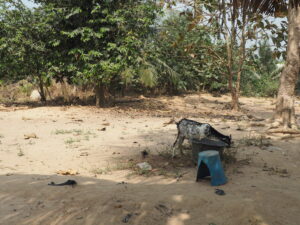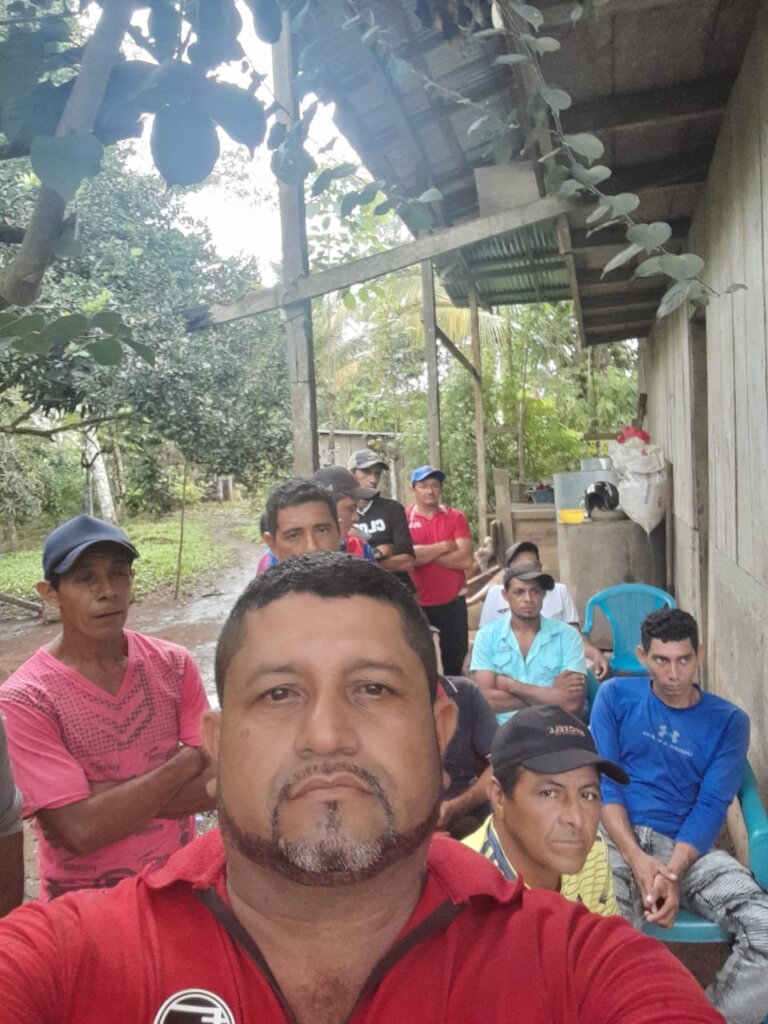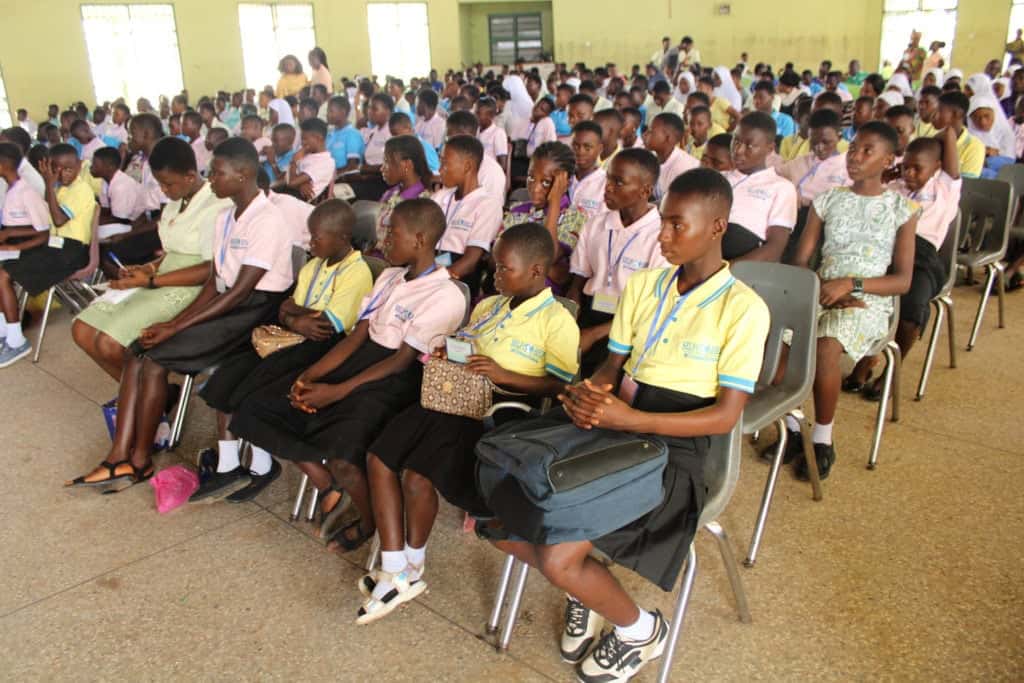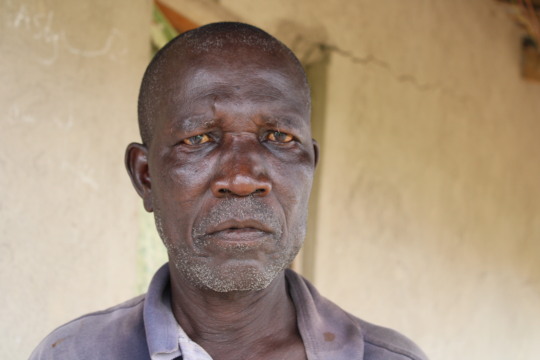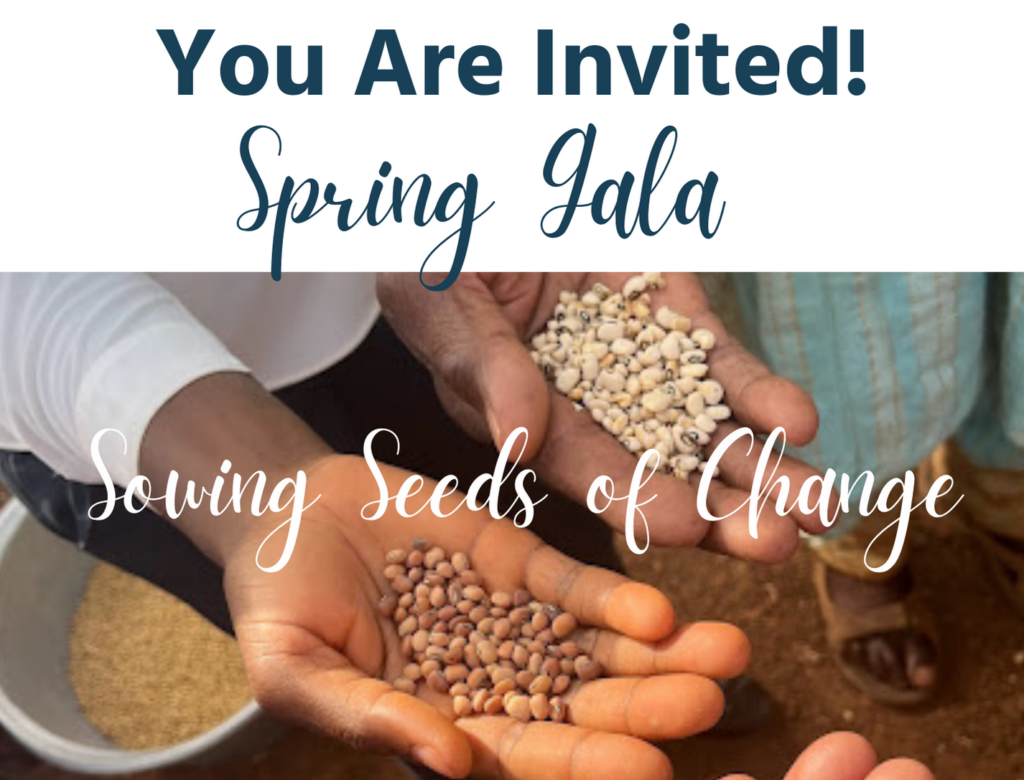
Gifty Discovers Multiple Benefits in the Micro-Credit Program
By Benjamin Yeboah and Bernard Ato Brown – Micro-Credit Officers

Gifty at a micro-credit training.
Gifty is 35 years old, and she farms rice and runs a small business selling kenkey (a local staple food prepared from corn). She lives in Adankwame, a small community in the Ashanti Region of Ghana with her husband, Elijah, and their five beautiful children.
Gifty learned about Self-Help International’s micro-credit program in 2016. Other women in Adankwame had shared with her how beneficial the program had been for their families and businesses. She was already selling kenkey to the residents of Adankwame and assisting her husband in their rice farming business, so she joined the micro-credit program seeking to invest in her kenkey business.
“Due to the seasonal nature of rice farming here in Ghana, my family mostly depends on the income I make from my kenkey business, especially during the farming off-season,” Gifty said.
“Access to loans from financial institutions are very difficult to get, especially for us in the rural areas; so, I was excited when I was introduced to and accepted into the micro-credit program and able to access loans with very flexible terms,” Gifty said.
Gifty Maximizes Her Money
Although she joined the micro-credit program to access loans to invest in her kenkey business, Gifty’s business acumen quickly maximized the benefits of the additional money.
“I have been able to invest in our rice farming business by purchasing nets, which we use to cover our rice farms when the grains begin to develop,” Gifty said. “This prevents losing some of the yield to birds eating the grains and damaging the crops.”
With the additional flexibility in how she can utilize her revenue, Gifty has also been able to make some upgrades in their house. She got their house wired for electricity, completed the roofing, and built a household latrine.
“Most houses in my community do not have latrines, so a lot of the residents are charged money to use the public latrine. When someone isn’t able to access the public latrine because they don’t have the money or it is too late in the night, they are likely to use the bushes,” Gifty said.

Gifty’s home.
“After attending a training organized by Self-Help about good sanitation and proper hygiene, I realized how important owning a latrine is in promoting hygiene in my home. That is why I decided to build a latrine,” Gifty said.
Gifty expressed her gratitude to the organization and the women’s empowerment team for the help the staff provides women – from financial assistance to training and advisory services. Through the continued support of the micro-credit program, Gifty is able to continue earning enough income to work on completing her family’s house. In addition, she has been able to expand her businesses to make enough money to help pay for her children’s educations.

 Previous Post
Previous Post Next Post
Next Post